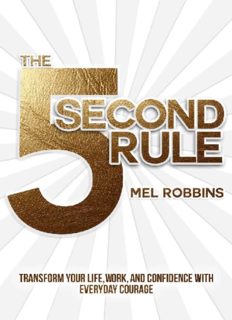Scholarship Success vs. Survivor's Guilt in Contemporary Novels
In the world of contemporary fiction, scholarship recipients are often depicted as ambitious individuals who beat the odds, gain access to elite education, and ultimately “make it.” Yet, beneath these success stories lies a deep, emotional complexity rarely discussed in mainstream narratives—the experience of survivor’s guilt. This psychological conflict arises when characters succeed through academic scholarships while others in their community are left behind, still facing systemic inequality.
Scholarship success is usually framed as a triumph of merit over adversity. But in many modern novels, authors dig deeper to expose the emotional toll of upward mobility. These characters frequently grapple with questions like: “Why me and not them?” “Do I deserve this?” “Am I betraying my roots?” Such questions challenge the myth of the self-made individual and reveal how progress for one does not erase the pain of collective struggle.
This blog explores how contemporary novels juxtapose scholarship success with survivor’s guilt—offering layered portraits of characters caught between gratitude and grief, ambition and obligation, pride and shame.
1. Defining Survivor’s Guilt in the Academic Context
Survivor’s guilt traditionally refers to the psychological distress experienced by those who survive a traumatic event while others do not. In the context of scholarship stories, it manifests differently. The trauma here is often poverty, racism, violence, or limited opportunity, and the character's “survival” takes the form of academic advancement.
The scholarship student leaves their neighborhood or home environment for a world of privilege—elite universities, global travel, new networks—only to find themselves emotionally stranded. They carry the weight of their community’s expectations and often feel unworthy of the success they’ve achieved. This duality—thriving in a new world while aching for the one they left behind—is a central theme in many modern novels.
2. Americanah by Chimamanda Ngozi Adichie: Displacement and Distance
In Americanah, Ifemelu earns academic accolades and wins scholarships that transport her from Nigeria to the United States. While her success is a testament to her intelligence and resilience, it comes with an emotional price. Ifemelu’s journey is marked by a growing sense of displacement—not just between countries, but between identities.
She becomes hyper-aware of how far she’s moved from her roots, especially in contrast to her boyfriend Obinze, who remains in Nigeria. Her scholarship success opens doors but also isolates her, particularly when she sees friends and family back home struggling. Adichie captures the nuance of survivor’s guilt—Ifemelu is not ungrateful, but she is uneasy. Her internal conflict reveals the psychological cost of being “the one who got out.”
3. Educated by Tara Westover: The Cost of Leaving Family Behind
Tara Westover’s memoir Educated provides a powerful real-life example of scholarship success intertwined with survivor’s guilt. Growing up in a survivalist family that rejected formal education, Westover eventually earns a PhD from Cambridge University through scholarships and fellowships.
However, her intellectual and personal transformation comes at a heavy price. She becomes estranged from her family, who view her education as betrayal. Her success distances her from the people and place that shaped her, leaving her in a state of emotional limbo. Westover’s narrative grapples with deep guilt—not because she didn’t deserve her opportunities, but because achieving them meant severing ties with everything familiar.
This memoir illustrates that scholarship success is not just a personal victory—it’s a rupture. And in that rupture, survivor’s guilt festers.
4. The Other Black Girl by Zakiya Dalila Harris: Competition and Isolation
In The Other Black Girl, the protagonist Nella navigates the world of publishing, not academia. Still, her backstory as a scholarship student at an elite college is central to understanding her present. She is one of the few Black women in a white-dominated space, and her success is shadowed by feelings of isolation and pressure to represent her entire community.
The novel doesn’t explicitly focus on survivor’s guilt, but it hovers in the background. Nella’s anxiety about not being “Black enough” or “grateful enough” for her success reflects the emotional weight many scholarship students carry. Her achievements don’t insulate her from racism or loneliness—in fact, they often exacerbate those feelings. The novel explores how survivor’s guilt can manifest as imposter syndrome, paranoia, or social alienation.
5. The Leavers by Lisa Ko: A Son’s Education, A Mother’s Loss
Lisa Ko’s The Leavers follows Deming Guo, the son of an undocumented Chinese immigrant, who is adopted by a white family and given every academic opportunity—including a private education and scholarships. While he benefits materially, his sense of identity fractures. He feels unmoored from his past and uncertain of his future.
When he reconnects with his birth mother, the emotional tension peaks. She has struggled and sacrificed, while he has grown up in comfort—yet neither feels whole. Deming’s guilt over his “better” life becomes a central emotional thread. Through his story, Ko critiques the notion that educational success alone can erase the pain of disconnection, especially when that success is built on the silence or suffering of others.
6. Community Expectations and the Burden of Representation
Survivor’s guilt in scholarship stories isn’t just internal; it’s shaped by external pressure. Many characters feel obligated to succeed for others—their parents, their neighborhood, their culture. This creates a psychological burden that can be crushing.
In The Hate U Give by Angie Thomas, Starr Carter attends a prestigious school on scholarship while still living in a poor Black neighborhood. She constantly shifts between identities, feeling too privileged for her community and too “urban” for her school. Starr’s survivor’s guilt manifests in her activism—her drive to speak out against injustice is fueled by a deep awareness of her own position of relative safety.
Scholarship success places her in a “safe” zone—but her emotional investment remains with those who are not. Her journey reflects how survivor’s guilt can be transformed into social responsibility, but not without internal conflict and pain.
7. From Individual Escape to Collective Change
Contemporary novels often contrast individual academic success with collective stagnation. The scholarship student may leave, succeed, and even return—but the larger system that oppressed them remains unchanged. This realization deepens survivor’s guilt and leads some characters to question the very notion of success.
In Behold the Dreamers by Imbolo Mbue, the characters are caught between hope and disillusionment. While scholarships and education are portrayed as vehicles of escape, they are also depicted as insufficient shields against systemic failure. Even those who succeed are haunted by the inequality they left behind. The novel suggests that personal advancement cannot be divorced from social context—and that guilt arises when one sees the limits of what education can truly solve.
8. Guilt as a Catalyst for Growth
Despite its heavy emotional weight, survivor’s guilt can also drive characters toward growth and activism. Rather than succumbing to shame or detachment, some scholarship recipients use their guilt as motivation to give back or challenge the systems that shaped them.
In Girl in Translation by Jean Kwok, the protagonist Kimberly Chang juggles academic excellence with family hardship. She wins scholarships, attends a top school, and eventually achieves success. But her journey is not one of individualism—it's about honoring her mother’s sacrifices and lifting others along the way. Her guilt is not paralyzing—it’s galvanizing.
Through characters like Kimberly, contemporary fiction shows that survivor’s guilt can evolve into empathy, resilience, and purpose—a narrative arc that turns emotional burden into transformative power.
Conclusion: Success Without Silence
The portrayal of survivor’s guilt in contemporary scholarship novels is both timely and timeless. These stories dismantle the idea that academic achievement is a clean, uncomplicated victory. Instead, they offer layered, humanizing depictions of what it means to “make it” while remembering those who didn’t—or couldn’t.
Scholarship success, in these novels, is not a finish line but a fork in the road. One path leads to assimilation and denial; the other to reflection, struggle, and growth. Survivor’s guilt, though painful, keeps characters connected to their origins and reminds readers that no one climbs alone.
In a world that often celebrates individual achievement at the expense of collective well-being, these stories urge us to ask deeper questions: What does true success look like? Who gets left behind? And how can we build bridges back to the communities that shaped us?
By spotlighting survivor’s guilt, literature doesn’t just critique systemic inequality—it calls for a more compassionate, inclusive vision of success. One that honors both the journey and the people who made it possible.








